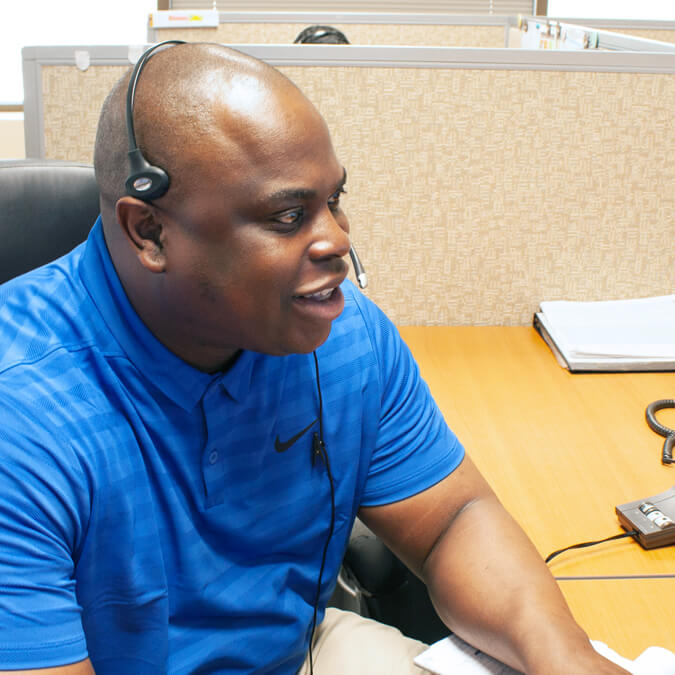
North Carolina Ignition Interlock Requirements
Intoxalock is now a recognized interlock provider in North Carolina. This guide will explain the North Carolina ignition interlock device and how offenders can regain their driving privileges after a DWI.
The North Carolina Ignition Interlock Program
In North Carolina, the legal blood alcohol content limit is .08 percent, or .04 percent for commercial license holders. All offenders found to have a BAC above the legal limit will have their license revoked for 30 days. This period may be extended if they are convicted.
Alcohol-based driving offenses in North Carolina are categorized into five different levels, one through five. Level One is considered the most serious offense, and Level Five the least serious. The penalties for each offense increase as the severity level increases. All penalties include a possibility of driving privileges being taken away. In some cases, the court may require the offender to install an ignition interlock device (IID) North Carolina approves in order to regain their driving privileges.
What Happens if I Get a DWI in North Carolina?
DWI Level Five
- Up to $200 fine
- 24 hours minimum to 60 days maximum jail term
- Sentences can be suspended if the offender spends 24 hours in jail and/or performs 24 hours of community service
- License suspension can increase to one year
- If the offender is placed on probation, they must complete a substance abuse assessment and may need to attend substance abuse treatment or classes to regain driving privileges, if under 21 years old
- Interlock can be required by the court
DWI Level Four
- Fine up to $500
- Jail sentence minimum of 48 hours to maximum of 120 days
- Sentences can be suspended if the offender spends 48 hours in jail and/or performs 48 hours of community service
- License suspension period can increase to one year
- If the offender is placed on probation, they must complete a substance abuse assessment and may need to attend substance abuse treatment or classes to regain driving privileges
- Interlock can be required by the court
DWI Level Three
- Fine up to $1,000
- Minimum jail sentence of 72 hours, maximum of six months
- Sentences can be suspended if the offender spends 72 hours in jail and/or performs 72 hours of community service
- License suspension can increase to one year
- If the offender is placed on probation, they must complete a substance abuse assessment and may need to attend substance abuse treatment or classes to regain driving privileges
- Interlock can be required by the court
DWI Level Two
- Fine up to $2,000
- Minimum jail sentence of seven days with a maximum of one year
- For Level Two offenders, the judge cannot suspend the minimum sentence but can reduce the sentence if above seven days with conditions of special probation such as alcohol monitoring.
- License suspension can increase to one year if convicted
- If the offender is placed on probation, they must complete a substance abuse assessment and may need to attend substance abuse treatment or classes to regain driving privileges
- Interlock can be required by the court
DWI Level One
- Fine up to $4,000
- Minimum jail sentence of 30 days with a maximum of two years
- The judge can reduce the imprisonment sentence to a minimum of 10 days with conditions of special probation such as alcohol monitoring
- License suspension can increase to one year
- If the offender is placed on probation, they must complete a substance abuse assessment and may need to attend substance abuse treatment or classes to regain driving privileges=
- Interlock can be required by the court
What Happens if I Refuse to Submit to a DWI Test in North Carolina?
A driver who refuses the test, their license will immediately be revoked for at least 30 days. An additional year is added on after an opportunity for a hearing. Some drivers may be able to regain their driving privileges after a six-month waiting period.
How Do I Regain Driving Privileges in North Carolina?
In North Carolina, offenders who refuse to take a BAC test or are convicted of DWI will have their license suspended. These license suspensions can last from one year to permanent, depending on the offense. However, some drivers are able to get limited driving privileges back with a limited license, sometimes called a restricted license or a hardship license. Eligible drivers must meet the following criteria:
- In North Carolina, offenders who refuse to take a BAC test or are convicted of DWI will have their license suspended. These license suspensions can last from one year to permanent, depending on the offense. However, some drivers are able to get limited driving privileges back with a limited license, sometimes called a restricted license or a hardship license. Eligible drivers must meet the following criteria:
- Offender must apply and request a hearing - the prosecutor’s office is notified of the hearing and has the opportunity to present arguments against granting a restricted license. The judge is ultimately responsible for granting the limited driving privileges, or not.
- Must hold a valid driver’s license at the time of the offense or a license that had been expired for less than one year
- Have not been convicted for a DWI offense within seven years of their current offense
- They received a Level Three, Four, or Five penalty for the conviction (Level One and Level Two offenders are likely ineligible)
- Since their conviction, they have not been charged with or convicted of another DWI offense
- They got a substance abuse assessment and filed it with the court
- Have not violated previous temporary license restrictions
- High-risk drivers who had a BAC of .15 percent or higher must meet additional requirements including:
- Installing an ignition interlock device
The Process: What to Expect
-
Consult with Legal Counsel
Seek guidance from a DUI lawyer to understand your legal options and rights following a DUI violation.
-
Get an Assessment
Complete a court-ordered or voluntary assessment to evaluate your risk level and determine any required interventions.
-
Schedule Interlock Install
Speak to our State Specialists to schedule your IID installation to meet court or state requirements.
-
Regular Monitoring
Your ignition interlock usage will be regularly monitored to maintain compliance with legal requirements.
-
Device Removal
After fulfilling your IID requirement and receiving approval from your monitoring authority, you can arrange to have your ignition interlock device removed at your local service center.
North Carolina Ignition Interlock Device Cost

Expert DWI Attorneys in North Carolina
Law Office of C. Walters
Salisbury, NC 28144
Mansfield Law Firm PLLC
Lumberton, NC 28358
Military Justice Center
Fayetteville, NC 28314
The Law Offices of J. Scott Smith, PLLC
Winston Salem, NC 27103
North Carolina FAQs
Can I get financial assistance to pay for my ignition interlock device in North Carolina?
Yes, financial assistance is available to those whose income is 150% below the federal poverty line, and those who receive certain types of public assistance.
How do I find an installation location near me in North Carolina?
Visit the North Carolina locations page to review all locations in North Carolina.
How does an ignition interlock device work?
To see how an ignition interlock device works, visit our ignition interlock page and watch our video demonstrating how to use the device.
How much does an ignition interlock cost in North Carolina?
The costs of your IID can vary depending on your provider. Intoxalock customers pay a $49.99 to $76.95 deposit and a $29.99 to $300 setup fee. The monthly fees total $49.99 to $76.95 for leasing the device.
What are the North Carolina ignition interlock device requirements?
North Carolina has a variety of penalties for DUI, and many offenders will have their license suspended. Some may be able to regain driving privileges by installing an ignition interlock device from a recognized provider like Intoxalock.
What are the other DUI requirements in North Carolina?
Check the North Carolina state page for all DUI penalties.
What are the steps to get my ignition interlock device in North Carolina?
You will receive a letter from the state if you are required to install an ignition interlock device, at which point you should make an appointment for installation.
What information should I provide to get my ignition interlock device removed in North Carolina?
You should bring your removal authorization to your appointment.
What information should I provide to get my ignition interlock device installed in North Carolina?
You should bring your driver’s license to the appointment.
What is an ignition interlock device, and why do I need one?
An ignition interlock device is a sophisticated device that promotes responsible behavior by making it impossible to start the car if the driver has consumed alcohol.
When can I get my ignition interlock device removed in North Carolina?
You will have to obtain a new license after installation. The removal date should be listed on the back of the license, unless your interlock term is extended.
Where can I find more information on ignition interlock devices?
To learn more about ignition interlock information, please visit our ignition interlock device page.
Where can I find other DUI resources such as a DUI attorney, treatment center, or SR-22 insurance in North Carolina?
We partner with many DUI attorneys in North Carolina, contact us for help finding one near you.
Customers Have Great Things to Say
The information provided on this website does not, and is not intended to, constitute legal advice; instead, all information, content, and materials available on this site are for general informational purposes only. Information on this website may not constitute the most up-to-date legal or other information.
Readers of this website should contact their attorney to obtain advice with respect to any particular legal matter. Only your individual attorney can provide assurances that the information contained herein – and your interpretation of it – is applicable or appropriate to your particular situation.









